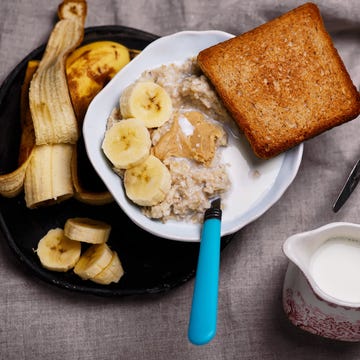In my opinion, food and eating really shouldn’t be that complicated, but we’re regularly bombarded with fresh headlines about what we should and shouldn’t eat. When I talk to individuals in my clinic, many just feel mystified and often fearful of making the wrong choices. One such area being talked about a lot at the moment is ultra processed foods (UPFs).
What are ultra processed foods?
A lot of the talk around UPFs came about in response to the NOVA food classification system developed by the University of Sao Paulo, Brazil, in 2018. There are four main categories:
1: Unprocessed or minimally processed foods: Directly derived from plant or animal origins which do not undergo alteration. Minimally processed refers to natural foods that have been exposed to cleaning or removal of inedible or unwanted parts, but without any added ingredients. Examples include frozen fruit and veg, packed potatoes, oats, legumes, herbs and spices, natural yoghurt without sugar and coffee.
What everyone's reading
2: Oils, fats, salt and sugar: Products extracted from natural foods (group 1) and used in moderation to season and cook food. Examples include oils made from seeds, nuts and fruits, to include soybeans, corn, oil palm, sunflower or olives; white, brown and other types of sugar and molasses obtained from cane or beet; honey extracted from honeycombs and butter.
3: Processed foods: These are group 1 foods plus group 2 foods or other substances, used to preserve and/or make them more palatable. Derived directly from original foods, most have two or three ingredients. Examples include canned or bottled vegetables in brine or vinegar; tomato pastes or concentrate; freshly made cheeses; salted or sugared nuts and seeds and dried or cured meats or fish.
4: Ultra processed foods: Industrial formulations made entirely or mostly from substances extracted from foods (oils, fats, sugar, starch and proteins), derived from food constituents (hydrogenated fats and modified starch), or synthesised in laboratories from food substrates or other organic sources (flavour enhancers, colours and additives). Examples include biscuits, ice cream, frozen desserts, chocolate, carbonated drinks, sports and energy drinks, prepared dishes such as pizzas, meat burgers, sausages, pastries, cakes, and distilled alcoholic drinks such as whisky, gin and vodka.
Are all ultra processed foods bad for you?
Remember that no one food is a saviour or demon – it’s all about balance. Comparatively, many UPFs can be beneficial to health. This is particularly true of ones that are high in fibre, for example supermarket wholemeal or seeded bread, cereals like Weetabix and tinned beans such as baked beans. Where UPFs are problematic is that often foods are processed to enhance their flavour, which can cause an increase in consumption, such as with cakes, biscuits and carbonated drinks, etc.
What does science say?
While there are studies that suggest UPFs are harmful, in reality we don’t have enough evidence to prove causation of the claims often made. That is not to say we shouldn’t apply caution – there are still some clear links that mustn’t be overlooked. One is between the consumption of processed meat and a higher risk of developing colorectal cancer, while there’s sufficient evidence to demonstrate that overconsumption of carbonated drinks is not beneficial to health.
My key takeaway is that foods high in fat, sugar, salt with low nutritional value should be kept to a minimum. That said, some sports nutrition products technically fit into this category, as they are designed to deliver energy quickly when we run. While many worry about their intake of sugar and other ingredients in sports nutrition, this can be balanced out by also consuming a wider diet high in fibre, fruits and vegetables.
My advice would be to try to eat real foods around your training and keep sports nutrition for during runs – that is, stick with oats, wholemeal bread or Weetabix as a pre-training options, fuel with gels, drinks and chews on the run, and recover with flavoured milk and a wholemeal sandwich, rather than a protein bar.
Renee McGregor is a leading sports dietitian with over 20 years’ experience - Reneemcgregor.com













